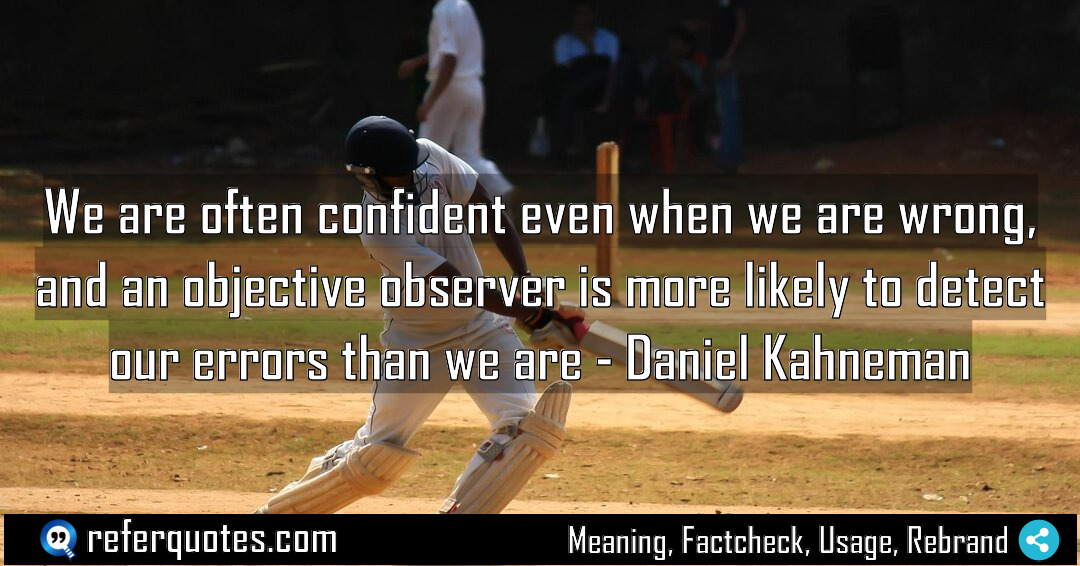We are often confident even when we’re wrong, and Kahneman hits on a brutal truth about human psychology. It’s the gap between how right we *feel* and how right we actually *are*. An outside view is almost always clearer than our own.
Share Image Quote:Table of Contents
Meaning
Our internal feeling of confidence is a terrible gauge of actual accuracy. In fact, it’s often when we’re most sure of ourselves that we’re most vulnerable to making a big mistake.
Explanation
Look, here’s the thing I’ve seen play out a thousand times in business and life. Our brain has this “fast” system—let’s call it the autopilot—that’s designed to make quick judgments and project confidence. It’s efficient, but it’s also lazy. It doesn’t like to stop and question itself. So we get this feeling of knowing that feels absolutely real. The real kicker? The more expertise you have in one area, the more this overconfidence can bleed into other areas where you’re not an expert. It’s a blind spot we all share. The “objective observer” Kahneman talks about isn’t necessarily smarter; they just don’t have your emotional investment in being right. They can see the cracks you’re subconsciously ignoring.
Quote Summary
| Context | Attributes |
|---|---|
| Original Language | English (3668) |
| Category | Personal Development (697) |
| Topics | bias (25), confidence (100) |
| Literary Style | clear (348) |
| Emotion / Mood | humble (74) |
| Overall Quote Score | 82 (297) |
Origin & Factcheck
This insight comes straight from Daniel Kahneman’s 2011 masterpiece, “Thinking, Fast and Slow.” It was published in the United States and synthesizes decades of his research with Amos Tversky. You sometimes see similar sentiments floating around, but this specific, elegant phrasing is uniquely Kahneman’s.
Attribution Summary
| Context | Attributes |
|---|---|
| Author | Daniel Kahneman (54) |
| Source Type | Book (4032) |
| Source/Book Name | Thinking, Fast and Slow (54) |
| Origin Timeperiod | 21st Century (1892) |
| Original Language | English (3668) |
| Authenticity | Verified (4032) |
Author Bio
Dr Daniel Kahneman transformed how we think about thinking. Trained in Israel and at UC Berkeley, he built a career spanning Hebrew University, UBC, UC Berkeley, and Princeton. His partnership with Amos Tversky produced prospect theory and the heuristics-and-biases program, culminating in the Nobel Prize in Economic Sciences. He engaged broad audiences through bestselling books and practical frameworks for better decisions. He continued writing and advising late into life, leaving ideas that shape economics, policy, medicine, and management. If you want to dive deeper, start with the Dr Daniel Kahneman book list and explore his enduring insights.
| Official Website
Where is this quotation located?
| Quotation | We are often confident even when we are wrong, and an objective observer is more likely to detect our errors than we are |
| Book Details | Publication Year: 2011; ISBN: 9780374275631; Latest Edition: Farrar, Straus and Giroux, 2013; Number of pages: 499. |
| Where is it? | Part III: Overconfidence, Chapter 20: The Illusion of Understanding, Approximate page 208 (2013 edition) |
